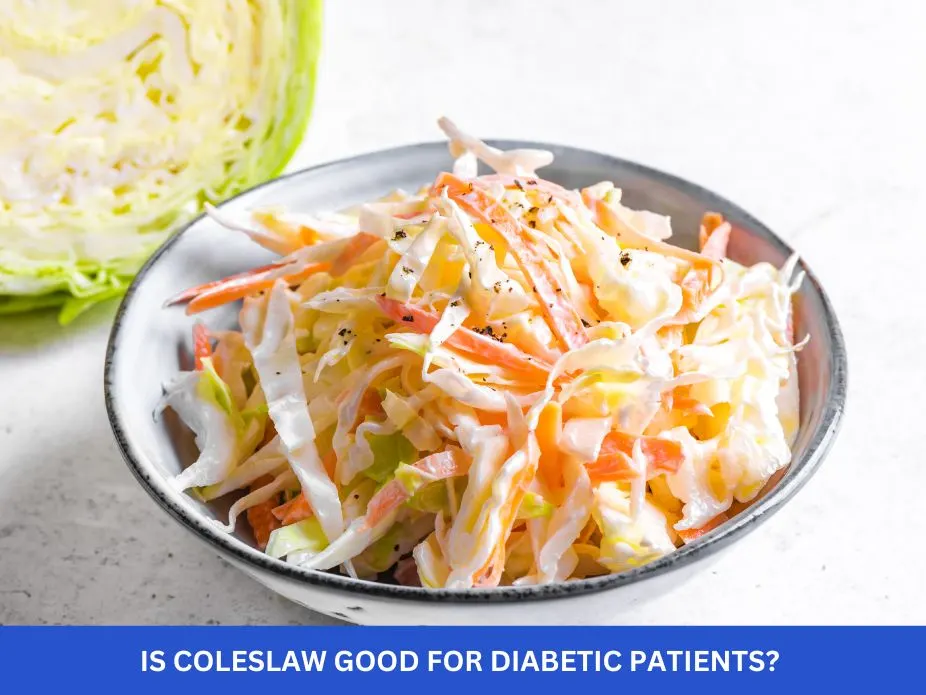Pregnancy is a time of many changes, and sometimes those changes come with discomfort, especially digestive issues like indigestion and heartburn. Many pregnant women turn to over-the-counter medications to relieve these symptoms, and one commonly used product is Eno, an antacid that provides quick relief for heartburn and acidity.
But the question arises: Is it safe to take Eno during pregnancy?
In this article, we will explore whether Eno is safe to use during pregnancy, its ingredients, potential risks, and safer alternatives. We will also discuss some important guidelines for using Eno or similar antacids during pregnancy.
What Is Eno?
Eno is a popular antacid product that is commonly used to relieve indigestion, heartburn, and acidity. It contains active ingredients like sodium bicarbonate, citric acid, and sodium carbonate, which work together to neutralize stomach acid and relieve the discomfort caused by acidity and bloating.
Eno is available in powder form, which is dissolved in water to create a fizzy solution that provides fast relief. It’s often used for quick relief from digestive issues, especially after meals or during episodes of acid reflux.
Is Eno Safe During Pregnancy?
Eno, like other medications, should be used with caution during pregnancy. While it may provide relief from digestive discomfort, there are a few factors to consider before using it. Let’s break down the safety aspects of taking Eno during pregnancy:
1. Ingredients in Eno
Eno contains sodium bicarbonate, citric acid, and sodium carbonate, which are all commonly used in antacids. Here’s a closer look at these ingredients and how they might affect pregnancy:
Sodium Bicarbonate (Baking Soda)
- Sodium bicarbonate is an alkaline substance that neutralizes stomach acid. While generally safe for occasional use in non-pregnant individuals, it is not recommended for regular use during pregnancy because it can cause sodium retention, leading to high blood pressure and swelling (edema). High sodium intake is something to avoid during pregnancy, especially for women with a history of hypertension or pre-eclampsia.
Citric Acid
- Citric acid is commonly used as a flavoring and acidulant in foods and beverages. While it’s generally safe, excessive amounts can sometimes cause stomach irritation, and it can contribute to the acidity in the stomach. It’s unlikely to pose a significant risk during pregnancy but should be used in moderation.
Sodium Carbonate
- Sodium carbonate is another alkaline substance that helps neutralize stomach acid. Similar to sodium bicarbonate, it can contribute to sodium retention if used excessively, which may not be ideal for pregnant women.
2. Potential Risks of Using Eno During Pregnancy
While occasional use of Eno is unlikely to cause significant harm during pregnancy, there are some potential risks to be aware of:
Excessive Sodium Intake
- Eno contains sodium, and excessive consumption of sodium during pregnancy can lead to complications such as swelling, high blood pressure, and fluid retention. Pregnant women are advised to monitor their sodium intake and avoid products that contribute significantly to their sodium levels, especially if they have pre-existing health conditions like hypertension or pre-eclampsia.
Overuse and Dependence
- Using antacids like Eno frequently can lead to dependence, where the body starts relying on external substances to neutralize stomach acid. Overuse of antacids can also result in a decrease in stomach acid, which might lead to issues with nutrient absorption, such as calcium and iron, both of which are crucial during pregnancy.
Interference with Other Medications
- Eno may interact with certain medications, including iron supplements, antibiotics, and other medications you might be taking during pregnancy. Always consult your healthcare provider before using Eno if you are on other medications.
3. When to Avoid Eno During Pregnancy
- If you have high blood pressure or a history of preeclampsia, it’s advisable to avoid Eno due to its sodium content.
- If you have been advised to limit sodium intake by your healthcare provider for any reason, it’s best to avoid using Eno.
- If you find yourself needing to use antacids frequently, it’s important to consult with your doctor to ensure that there are no underlying issues, such as acid reflux or GERD (gastroesophageal reflux disease), that need further treatment.
Safe Alternatives to Eno for Pregnancy
While Eno may offer quick relief, there are safer and more suitable alternatives for managing indigestion, heartburn, and acidity during pregnancy. Let’s explore some of these options:
1. Antacids Containing Calcium Carbonate (e.g., Tums)
- Tums and other antacids containing calcium carbonate are often considered safer during pregnancy. They can help neutralize stomach acid and provide calcium, which is an important mineral for bone health during pregnancy.
- Calcium carbonate is generally well-tolerated during pregnancy and has fewer side effects compared to sodium-based antacids like Eno.
2. Ginger
- Ginger is a natural remedy for nausea, indigestion, and heartburn. It has soothing properties that can help alleviate digestive discomfort. You can consume ginger in the form of tea, candied ginger, or fresh ginger.
- Ginger is considered safe during pregnancy in moderate amounts and is a great alternative for those seeking natural solutions.
3. Apple Cider Vinegar
- While it may sound counterintuitive, apple cider vinegar can help balance stomach acid and reduce heartburn in some individuals. Mix 1-2 teaspoons of apple cider vinegar in warm water and drink it before meals for relief.
- Always use diluted apple cider vinegar to avoid irritation to the stomach lining.
4. Dietary Adjustments
- Making some lifestyle and dietary changes can also help reduce the frequency of heartburn and indigestion:
- Eat smaller, more frequent meals rather than large meals.
- Avoid trigger foods like spicy, fatty, and acidic foods.
- Drink plenty of water throughout the day, but avoid drinking large amounts during meals.
- Elevate your head when sleeping to prevent acid reflux.
How to Safely Manage Heartburn and Indigestion During Pregnancy
If you’re dealing with heartburn and indigestion during pregnancy, here are a few tips to help you manage the discomfort:
1. Sleep with Your Head Elevated
- Propping your head up with extra pillows while sleeping can help prevent stomach acid from rising into your esophagus, which causes heartburn.
2. Avoid Eating Before Bed
- Try not to eat large meals or snacks right before bed. Give your stomach time to digest food before lying down to prevent acid reflux.
3. Chewing Gum
- Chewing sugar-free gum can help stimulate saliva production, which naturally neutralizes stomach acid. This can be a simple and effective remedy for heartburn.
4. Maintain a Healthy Weight
- Gaining excessive weight during pregnancy can put additional pressure on your stomach and worsen heartburn. A balanced diet and moderate physical activity can help manage weight gain and reduce digestive discomfort.
Real-Life Scenario
A pregnant woman in her second trimester feels severe acidity after meals. She wonders if taking Eno is safe for quick relief. While it may temporarily reduce discomfort, frequent use without consulting a doctor could lead to electrolyte imbalance or excessive sodium intake, which is not ideal during pregnancy.
Expert Contribution
Obstetricians and pharmacists generally advise that occasional use of antacids like Eno can be safe during pregnancy if taken in moderation. However, they recommend:
- Avoiding prolonged or frequent use without medical supervision.
- Checking the sodium content, as high sodium can contribute to fluid retention and high blood pressure.
- Considering alternative remedies like eating smaller meals, avoiding spicy and acidic foods, and staying upright after eating.
Recommendations Grounded in Proven Research and Facts
- Moderation is key: Occasional use of Eno is generally considered safe for most pregnant women.
- Consult your doctor: Especially if acidity is frequent, severe, or accompanied by other symptoms.
- Alternative strategies:
- Eat small, frequent meals rather than large ones.
- Avoid spicy, fried, or highly acidic foods.
- Drink plenty of water and remain upright after meals.
- Monitor sodium intake: Excessive sodium can affect blood pressure and fluid balance.
FAQ Section: Can We Take Eno in Pregnancy?
1. Is Eno safe to take during pregnancy?
Eno can provide temporary relief for indigestion and heartburn during pregnancy, but it should be used with caution due to its high sodium content. If you have high blood pressure or a history of preeclampsia, it’s better to avoid Eno and consult your healthcare provider.
2. What are the risks of taking Eno during pregnancy?
The primary risks of using Eno during pregnancy include sodium retention, which can lead to fluid retention and high blood pressure, as well as the potential for overuse leading to reduced stomach acid production or nutrient absorption.
3. What is a safer alternative to Eno during pregnancy?
Safer alternatives include antacids containing calcium carbonate (e.g., Tums), ginger for nausea and indigestion, and apple cider vinegar (in moderation). Eating smaller meals, drinking plenty of water, and making dietary adjustments can also help manage heartburn.
4. Can I take antacids regularly during pregnancy?
It’s best not to take antacids regularly during pregnancy unless recommended by your doctor. Frequent use can interfere with nutrient absorption and could mask underlying digestive issues that need medical attention.
5. Is it safe to use home remedies like ginger or apple cider vinegar during pregnancy?
Yes, both ginger and apple cider vinegar are considered safe in moderation during pregnancy for managing heartburn and indigestion. However, always check with your doctor before trying new remedies to ensure they are safe for you.
Conclusion
In conclusion, Eno can provide quick relief for indigestion and heartburn during pregnancy, but it should be used cautiously due to its sodium content. Pregnant women with high blood pressure or those advised to limit sodium intake should avoid Eno and opt for safer alternatives like calcium carbonate-based antacids, ginger, and apple cider vinegar. It’s always a good idea to consult with your healthcare provider before using any medication or remedy during pregnancy to ensure it’s safe for you and your baby.



